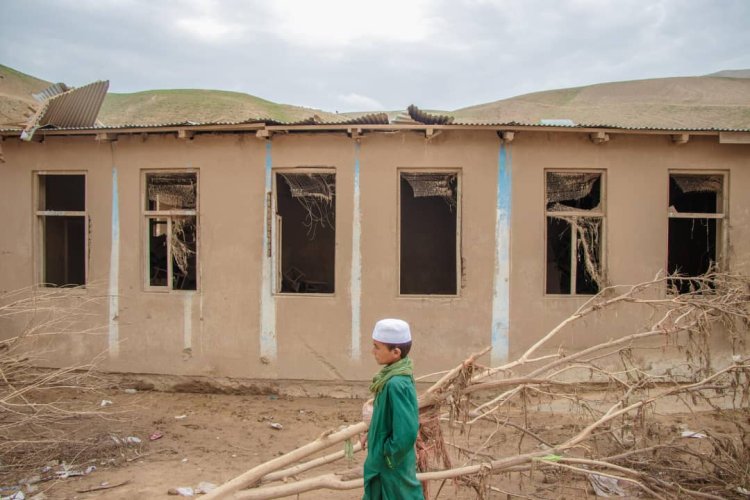UNICEF: floods destroyed 110 schools in Afghanistan in 2024

On the occasion of International Education Day (Friday, January 25), UNICEF reported that climate change in Afghanistan has significantly damaged schools, creating challenges for access to education and impacting students' focus, memory, and physical and mental health.
The UN agency warned that prolonged school closures place students, particularly girls, at a higher risk of dropping out, child marriage, and gender-based violence.
According to a new analysis released by UNICEF to mark International Education Day, the education of at least 242 million students in 85 countries was disrupted in 2024 due to climate-related events such as rising temperatures, storms, floods, and droughts.
“Children are more vulnerable to the impacts of climate-related crises, including more intense and frequent heatwaves, storms, droughts, and floods,” said UNICEF Executive Director Catherine Russell.
She noted that over the past year, extreme climate events have affected the education and health of one in seven students globally.
UNICEF highlighted Afghanistan as one of the countries severely affected by climate risks. In May 2024, flooding damaged over 110 schools in Afghanistan, disrupting the education of thousands of students.
The organization has called for increased investment to protect children from the impacts of climate change and to ensure their right to education is safeguarded amidst environmental crises.
